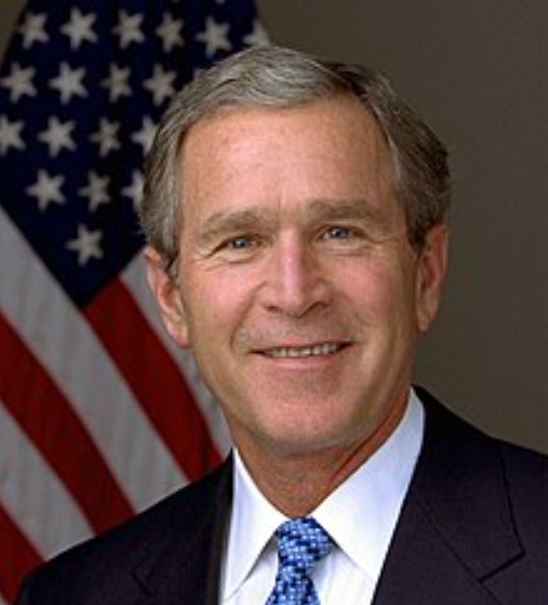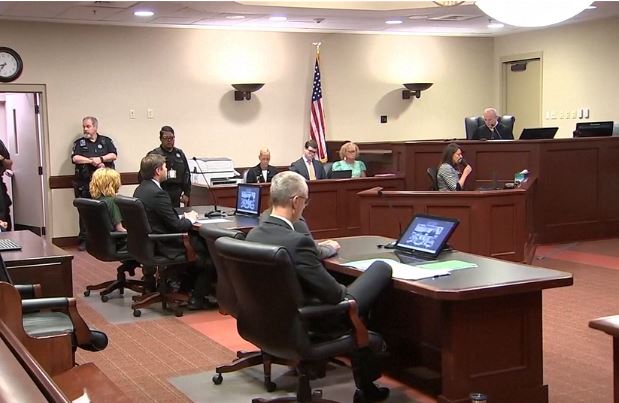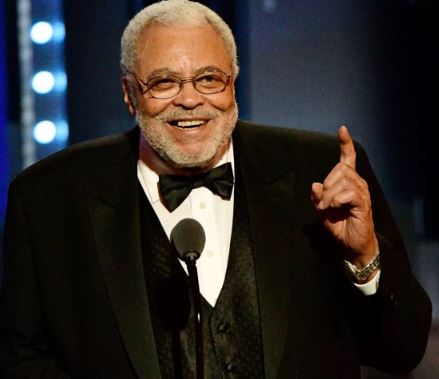George Walker Bush, born on July 6, 1946, in New Haven, Connecticut, is a significant figure in modern American history. As the 43rd President of the United States, Bush’s tenure was marked by transformative events that shaped the country and the world. From the September 11 attacks to the wars in Afghanistan and Iraq, his presidency is remembered for its profound impact on global politics, as well as for the deep divisions it sometimes caused at home.
Early Life and Education
George W. Bush was born into one of America’s most prominent political families. His father, George H.W. Bush, served as the 41st President of the United States, and his grandfather, Prescott Bush, was a U.S. Senator. Growing up, Bush was surrounded by political influence, yet his early life was not without its challenges.
Bush spent his childhood in Texas, where his family moved when he was two years old. He attended Phillips Academy in Andover, Massachusetts, before going on to Yale University, where he earned a degree in history in 1968. During his time at Yale, Bush was known for his outgoing personality and involvement in social activities rather than academic achievement.
After Yale, Bush enlisted in the Texas Air National Guard, where he trained as a pilot. This period of his life has been the subject of much scrutiny, particularly regarding his service during the Vietnam War era. Following his time in the National Guard, Bush earned an MBA from Harvard Business School in 1975, making him the first U.S. president to hold an MBA.
Early Career and Entry into Politics
After completing his MBA, George W. Bush entered the business world, where he worked in the oil industry in Texas. He founded his own oil exploration company, Arbusto Energy, in 1977. Although his business ventures had mixed success, Bush gained valuable experience that would later inform his approach to economic policy.
In 1977, Bush married Laura Welch, a former teacher and librarian. The couple had twin daughters, Jenna and Barbara, in 1981. Laura Bush would go on to play a significant role as First Lady, advocating for education and literacy.
Bush’s first foray into politics came in 1978 when he ran for a congressional seat in Texas. Although he lost the election, it was an important learning experience that fueled his desire to pursue a career in public service. Over the next decade, Bush focused on his business interests and played a key role in his father’s successful presidential campaign in 1988.
Governor of Texas
In 1994, George W. Bush ran for Governor of Texas, challenging the incumbent, Ann Richards. His campaign focused on education reform, crime reduction, and welfare changes. Bush won the election and was re-elected in 1998, making him the first governor in Texas history to be elected to two consecutive four-year terms.
As governor, Bush earned a reputation for his bipartisan approach to governance. He worked with both Democrats and Republicans to pass significant reforms, particularly in education, where he championed the idea of accountability and standardized testing to improve student performance. His tenure as governor set the stage for his bid for the presidency in 2000.
The 2000 Presidential Election
The 2000 presidential election between George W. Bush and Vice President Al Gore was one of the closest and most controversial in American history. The election ultimately hinged on the results in Florida, where a contentious recount process led to a Supreme Court decision in Bush v. Gore. The Court’s ruling effectively awarded Florida’s electoral votes—and thus the presidency—to Bush.
Bush’s victory, despite losing the popular vote, underscored the divisions within the country. His presidency began amid controversy, but he soon faced challenges that would define his time in office.
Presidency: The Defining Years
George W. Bush’s presidency was dominated by the events of September 11, 2001. The terrorist attacks on New York City and Washington, D.C., which killed nearly 3,000 people, had a profound impact on the nation and the world. In response, Bush launched the War on Terror, which included the invasion of Afghanistan to dismantle al-Qaeda and remove the Taliban from power.
In 2003, Bush made the controversial decision to invade Iraq, based on intelligence reports suggesting that Iraqi President Saddam Hussein possessed weapons of mass destruction (WMDs). The Iraq War became a central focus of Bush’s second term and remains one of the most debated aspects of his presidency. The failure to find WMDs and the prolonged conflict led to significant criticism both domestically and internationally.
Bush’s domestic policies were also notable, particularly his tax cuts, education reform through the No Child Left Behind Act, and efforts to reform Social Security. His administration faced significant challenges, including Hurricane Katrina in 2005, which exposed weaknesses in the federal government’s disaster response, and the financial crisis of 2008, which occurred in the final months of his presidency.
Post-Presidency and Legacy
After leaving office in January 2009, George W. Bush largely stepped back from the public eye, focusing on his family, writing, and humanitarian work. He established the George W. Bush Presidential Center in Dallas, Texas, which includes his presidential library, museum, and policy institute.
Bush has dedicated much of his post-presidential life to various causes, including veterans’ support, global health initiatives, and promoting democracy. He has also taken up painting as a hobby, publishing a book of his artwork featuring portraits of veterans.
Bush’s legacy is complex and continues to be the subject of significant debate. Supporters praise his leadership in the wake of 9/11 and his efforts to spread democracy abroad, while critics point to the Iraq War and the economic policies that they argue contributed to the financial crisis. Despite the controversies, Bush’s influence on American politics and global affairs remains undeniable.
George W. Bush’s life is a story of privilege, ambition, and resilience. From his early years in Texas to the White House and beyond, his journey reflects the challenges and responsibilities of leadership in the modern world. Whether viewed as a decisive leader or a divisive figure, his impact on the United States and the world will be remembered for generations to come.





